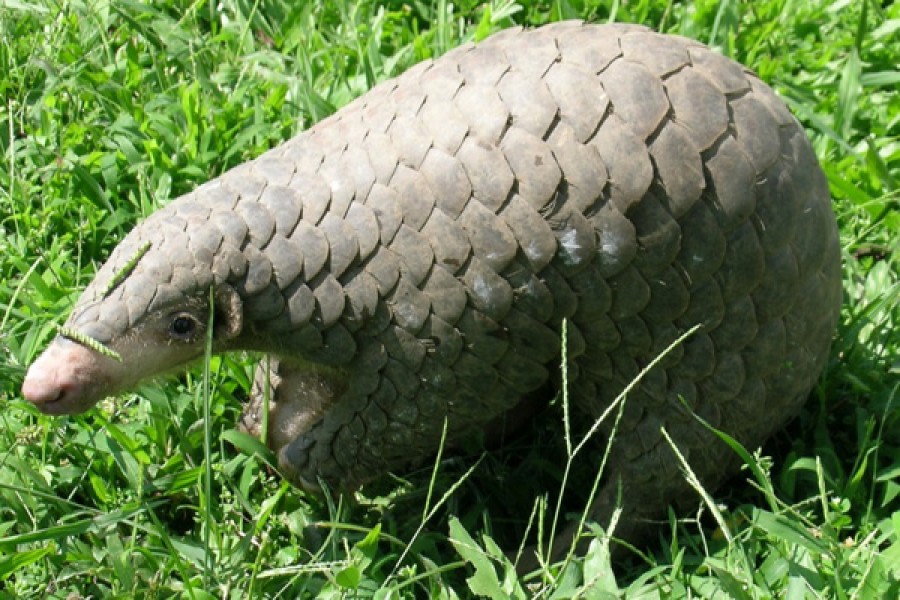Researchers have found pangolins do persist in many forested areas of Bangladesh.
With the help of the Mro tribe in Bangladesh Researchers found the pangolins, but in small, isolated populations, according to a report by news.mongabay.com
Pangolins, one of the most trafficked mammals in the world, are fast disappearing from earth.
Yet, we know very little about these solitary animals.
Even basic information such as pangolins’ populations is severely lacking, scientists say, making it difficult to plan conservation actions to save the animals.
The numbers of these armored mammals have plummeted in Bangladesh largely due to poaching for their scales, concluded the study published in PlosOne.
Lead author of the study, Scott Trageser of the Creative Conservation Alliance in Dhaka, Bangladesh, said that they first started looking into pangolins when a local honey collector in Lawachara National Park in northeast Bangladesh told them of a “large, scaled fish, ‘bon rui’ that was lurking in the forest”.
“Lawachara is our main study site in the northeast but we had never seen a pangolin in years of surveying,” said Trageser.
“This was exciting new information for us in 2015 so we began searching for a live individual as virtually nothing was known about them in Bangladesh. When we discovered the presence of several pangolins in Lawachara, we went one step further and decided to research which forested areas country-wide still harbored pangolins.”
The study found that pangolins occur in small, isolated populations in Lawachara National Park and surrounding areas.
Some of the study’s findings surprised the team.
For instance, some researchers have previously suggested that the pangolin species most commonly encountered in Bangladesh is the endangered Indian pangolin (Manis crassicaudata).
The critically endangered Chinese pangolin (Manis pentadactyla) is either extremely rare or extinct, they concluded.
However, Trageser’s team found that it is, in fact, the other way round. The Chinese pangolin seems to occur in Bangladesh in small, isolated populations, at least within Lawachara National Park, adjoining protected areas, as well as in the bordering tea plantations.
The Indian pangolin, in contrast, is possibly rare or extinct within the country. Overall, the team found “no recent or historical evidence” of the Indian pangolin or the Sunda pangolin (Manis javanica) occurring in Bangladesh.
“There is a chance we will still find Indian Pangolin in northwestern Bangladesh, but for now this means that there is one less country able to fight for the survival of these two species,” said study co-author Animesh Ghose of Creative Conservation Alliance.
“I believe we will have success in keeping viable populations of Chinese Pangolin in Bangladesh but we cannot do the same for the Indian or Sunda pangolin.”
Pangolin hunting has also shot up since 2010, the researchers found.
This spike in poaching was most likely due to a rise in the price of pangolin scales, the researchers concluded from their interviews with hunters from the Mro tribe in the Chittagong Hill Tracts in southeast Bangladesh.
While the price of 1 kilogram (2.2 pounds) of pangolin scale was below $100 in 2008, it had risen to about $500 by January 2016.
One of the hunters the researchers interviewed said that although he had killed 32 pangolins since 2010, only two of these were in 2014.
The researchers believe that this points towards a sharp decline in pangolin numbers in the area.
The team’s camera trap survey in the area, too, yielded more than 16,000 photographs of 19 mammal species, but none of pangolins.
In fact, the commercial harvesting of pangolin scales — destined for consumption in China via Myanmar — may have wiped out pangolins from most areas within the Chittagong Hill Tracts, the team concluded.


